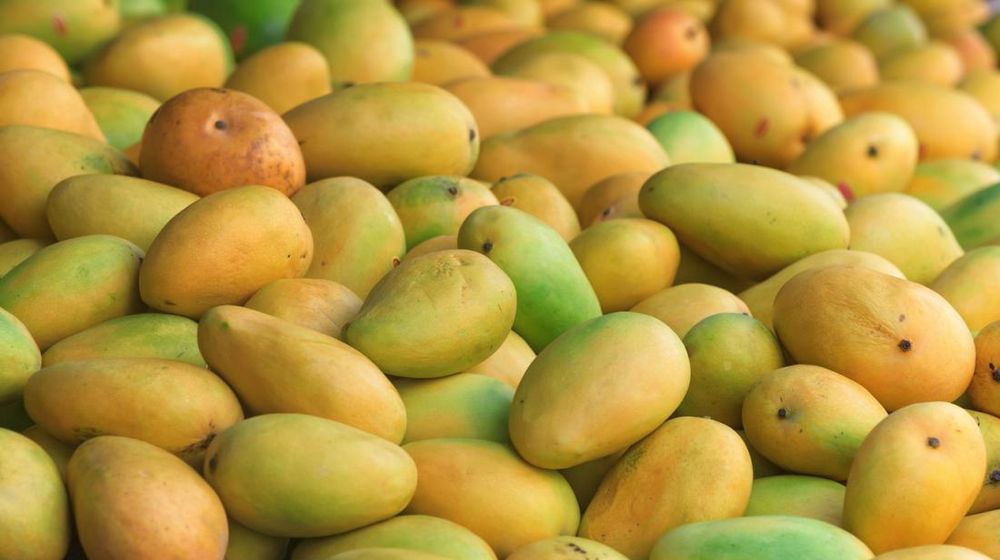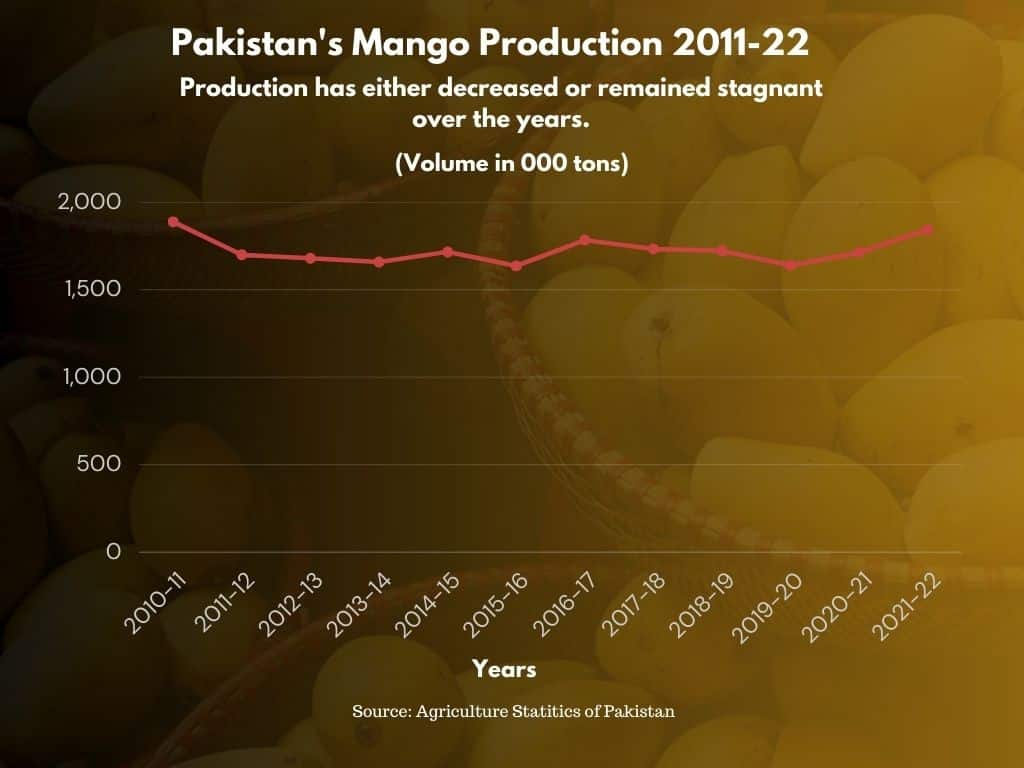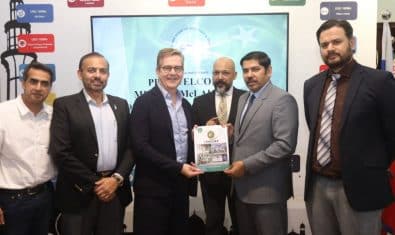Pakistan Fruit Exports have declined by an alarming 42 percent year-on-year (YoY) in the first 9 months of FY 2022-23 in dollar terms with a 67.5 percent YoY decline in March 2023 compared to the same period last year.
Although the exports of our world-renowned king of fruits have witnessed a 110% increase in volume between 2014 and 2021, its production has been heavily affected due to climate change and elevated temperatures in recent years.
Last year’s heatwave reduced mango production by 50% with a 3-8 degree increase in average temperatures in key growing regions.
The heightened temperatures were probably observed during the mango flowering which is extremely sensitive to temperature changes. Fortunately, experts are expecting a bumper mango production this year as temperatures remained moderate between 27 and 30 degrees during the months of March and April which are central to Mango Production.
Although some farmers we talked to even seemed alarmed at these temperatures saying they are too low for fruit setting in Mangoes which require around 34 degrees. These unexpected and volatile changes are the definition of climate change. These are the sectors of strategic importance for the future of the economy and cannot possibly be left at the mercy of climate indicators.
Pakistan is the world’s sixth-biggest producer and 4th largest exporter of fresh mangoes. But Pakistan’s mango production and cultivated area have overall decreased or remained stagnant over the last decade according to the Agriculture Statistics of Pakistan.
2021-22 Production stood at 1.84 million tons, which has though recovered compared to the past years, is still lower than the 2010-11 level of 1.88 million tons.
While the department has yet to update the last year’s numbers, the stats reflect the damaging effects of climate change and global warming which has been preventing the growers from tapping the true potential of the industry.
Fruit Production already faces multiple problems in Pakistan including the lack of a cold chain for effective processing and storage, the absence of physical infrastructure i.e. roads, unavailability of quality seeds & unregulated nurseries spreading disease pathogens, lack of awareness regarding proper nutrition & pest management and water shortages.
The effects of all of these have been worsened by the climate change. According to studies conducted by Mango Research Institute, Multan, fruit setting in Mango requires relatively moderate temperatures and nearly all domestically available cultivars suffer sunburns in high temperatures.
Small farm size is found to be a big hurdle in increasing the production of tropical fruits in hot areas which can be resolved by Government allotment of state-owned land to small landholders. Similar actions during the Land Reforms of 1959, 1972 and 1977 contributed to the increase in the production of horticultural exports.
“The government needs to invest heavily in the Research and Development of temperature-resilient cultivars, which can also be done through public-private partnerships. There is a holistic approach required to address this issue where Government needs to study the weather patterns,” stated Muhammad Ali Iqbal from Concave Agri, an Isb-based Agritech startup that provides technology solutions for effective farming decisions.
“Most queries we get are about weather, but these services are expensive at the moment and not many farmers can afford it. Small Weather Stations need to be established at the micro level for accurate area-specific updates to be provided economically,” he added.
Modern digital channels need to be explored for the timely dissemination of agriculture extension and farm advisory services, especially when the climate indicators experience sudden and unexpected changes, so farmers can take the necessary steps.
Uncertified nurseries fail to protect the germplasm from pathogens which later get spread due to increased temperatures and humidity. The government needs to regulate these nurseries and train their staff for the handling of plant material.
Due to declined levels of water resources, Farmers have been extensively pumping the groundwater to relieve plants from the temperature stress, but the groundwater is mostly unfit for agronomic use in these areas with different salt levels which is causing further issues in the growth.
Pakistan Fruits and Vegetables Export Strategy (2023-27) was developed in consultation with the International Trade Center (ITC), Ministry of Commerce, Trade Development Authority Pakistan (TDAP), All Pakistan Fruit & Vegetable Exporters, Importers & Merchants Association and others.
According to this, Pakistan’s key strategic partner China is the world’s largest importer of mangoes, but 80 percent of its demand is supplied by Thailand due to the lack of consistency in our fruit quality. Stakeholders in both Pakistan and China have been increasing cooperation in this regard lately, but the efforts have yet to bring meaningful changes.
The document also proposed investments in the sector to comply with China’s quality and SPS requirements, strengthening the trade negotiations capacity of the officials through dialogue with the private sector, building Fruits and Vegetable Model Training Farms and introducing and developing varieties that are in high demand in the international market instead of just focusing on traditional cultivars.
TDAP has recently initiated a Mango bagging Project on a pilot basis in Multan and Mango Belt in Sindh on two dozen farms. The paper has been imported and provided by TDAP for bagging which is one of the many regulatory requirements in order to enter the high-end Western markets.
More such efforts are needed from both the public and private sector institutions especially regarding the effects of Climate Change, in order to strengthen the supply chain and increase the quality standards of the produce.






















